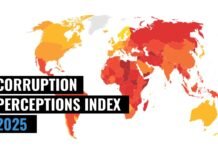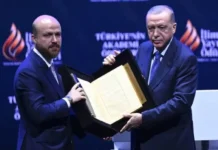In a joint statement 73 bar associations across Turkey called on the UN and the international community to initiate targeted sanctions against China in order to stop its treatment of the “Uyghurs of East Turkestan.”
The Chinese government is committing crimes against humanity, and coordinated international action is needed, the Turkish bar associations said in their statement.
They also urged the Turkish people and national rights organizations to raise their voices against the Chinese repression.
A report released by Human Rights Watch (HRW) in April identified a range of abuses against Uyghurs that amount to offenses committed as part of a widespread and systematic attack directed against a population: mass arbitrary detention, torture, enforced disappearances, mass surveillance, cultural and religious erasure, separation of families, forced returns to China, forced labor and sexual violence and violations of reproductive rights.
The Turkish government’s Uyghur policy is widely criticized by its citizens and rights organizations. A total of 53.2 percent of Turks think the government hasn’t given an “appropriate response” to the Chinese treatment of its Uyghur Muslim minority in northwestern Xinjiang province, according to a survey conducted by Metropoll.
On March 10 a motion calling China’s abuses against Uyghurs “genocide” was voted down by the ruling Justice and Development Party (AKP). Deputies from its ally the Nationalist Movement Party (MHP) chose to abstain from the vote in parliament.
The motion was submitted by the right-wing opposition İYİ (Good) Party to Parliament Speaker Mustafa Şentop, asking the parliament to declare China’s actions against Uyghurs “genocide” in accordance with the UN Convention on the Prevention and Punishment of the Crime of Genocide.
China’s treatment of the Uyghurs has drawn international condemnation, with human rights groups estimating that some 1 million Uyghurs have been arbitrarily incarcerated in a network of prison camps.
The Chinese Communist Party (CCP) denies committing atrocities and abuses against the Uyghurs despite a growing body of evidence. The Chinese government has steadfastly resisted calls to admit independent monitors into the region, allowing only carefully stage-managed tours for select journalists and diplomats.
Resolutions passed by the Dutch, Canadian and British parliaments called China’s repression of Uyghurs “genocide.”
The United States, the European Union, Britain and Canada in March imposed sanctions on several Chinese officials for human rights abuses against the Uyghurs.
As Ankara grows more economically dependent on Beijing, the Turkish government is no longer offering a safe haven or defending Uyghur rights. Genocide motions in Western parliaments have also been criticized by government and party officials.
The Uyghurs have sought refuge in Turkey for decades because of their shared cultural ties. Turkey, however, has become less vocal about the plight of Uyghurs in recent years as it has developed economic ties with China.
An estimated 50,000 Uyghurs are currently living in Turkey, making it the largest Uyghur diaspora in the world.
Uyghurs in Turkey not only worry about their families but also fear for their own safety as China recently ratified an extradition agreement with Turkey that was signed several years ago.
The Turkish government arrested members of the Uyghur diaspora in the country during the official visit of Chinese Foreign Affairs Minister Wang Yi to Ankara on March 25-26.















